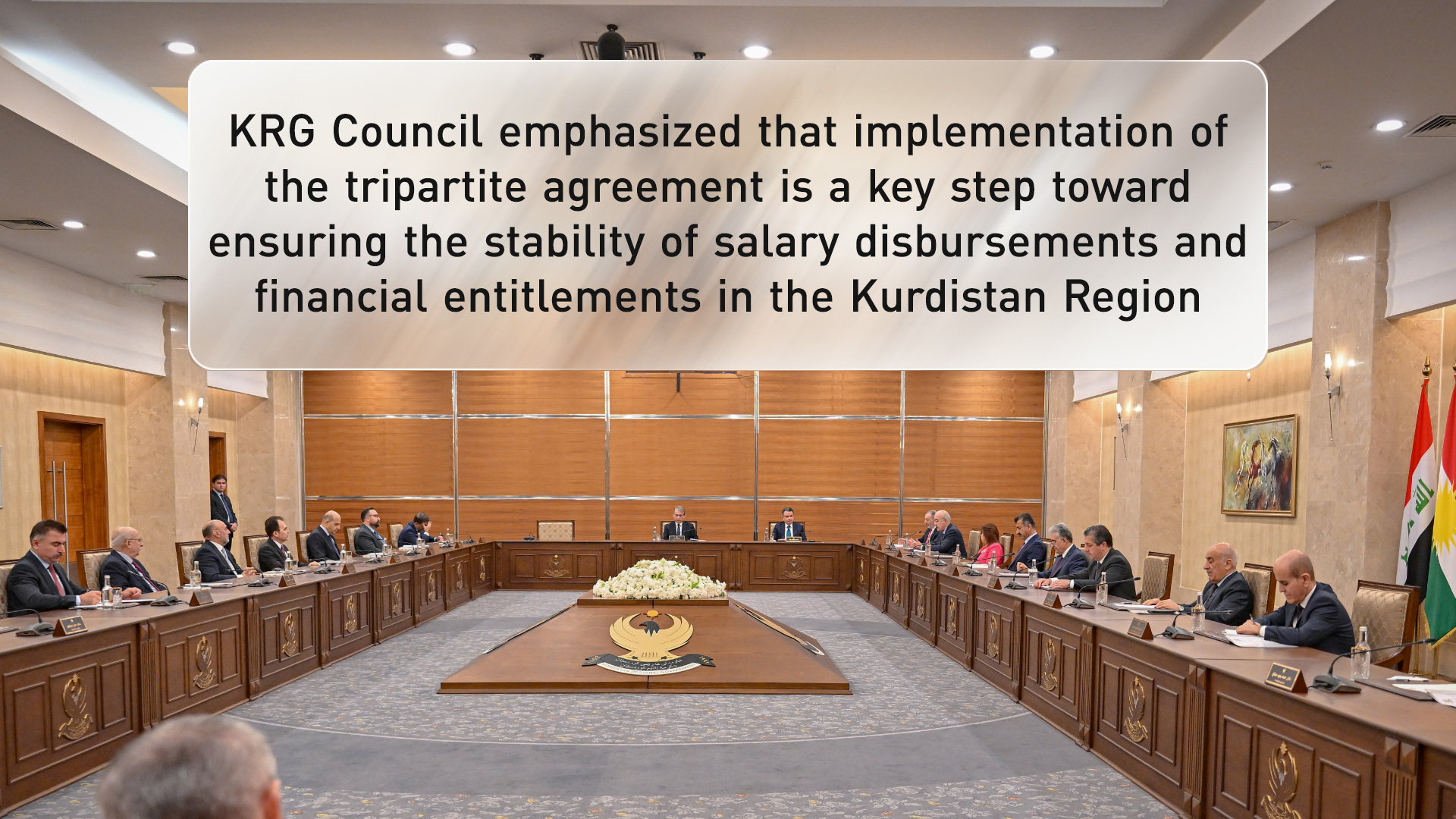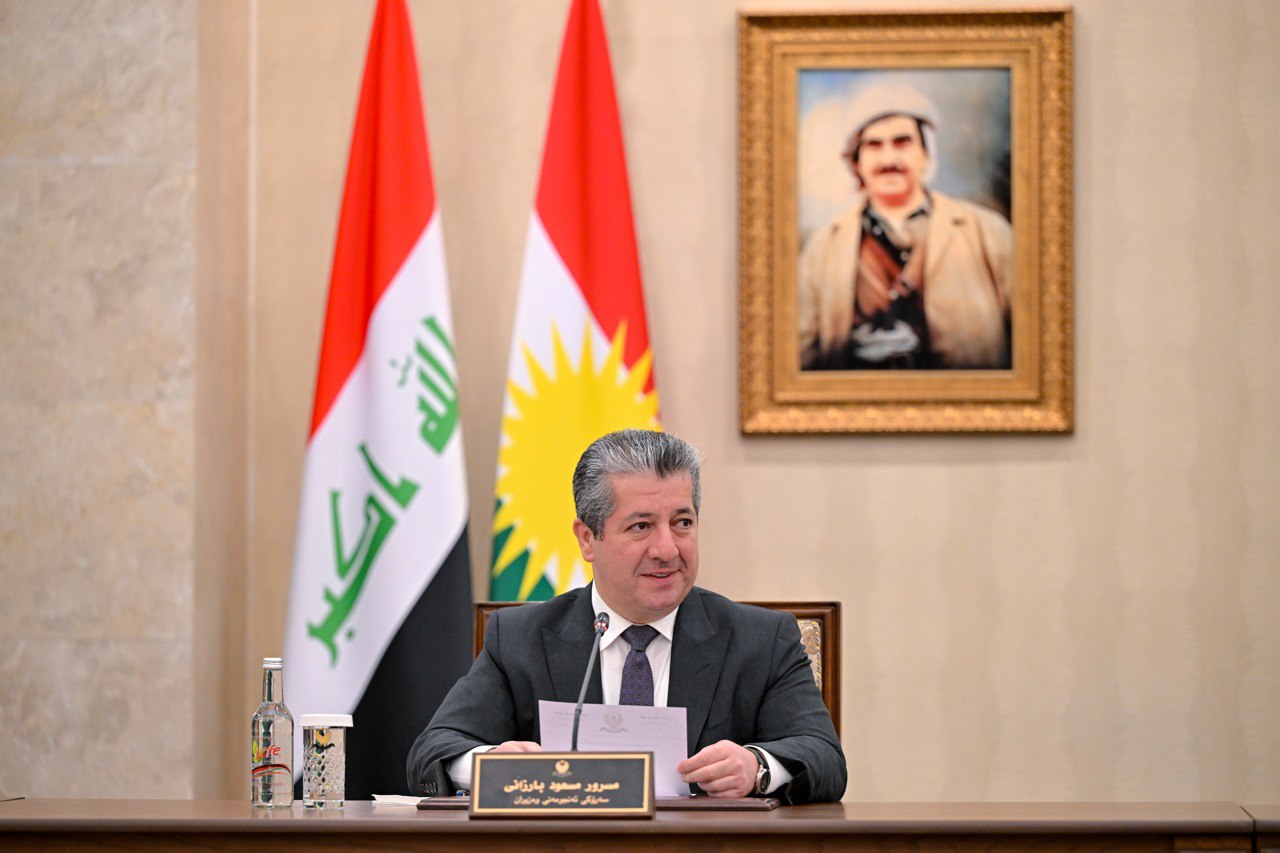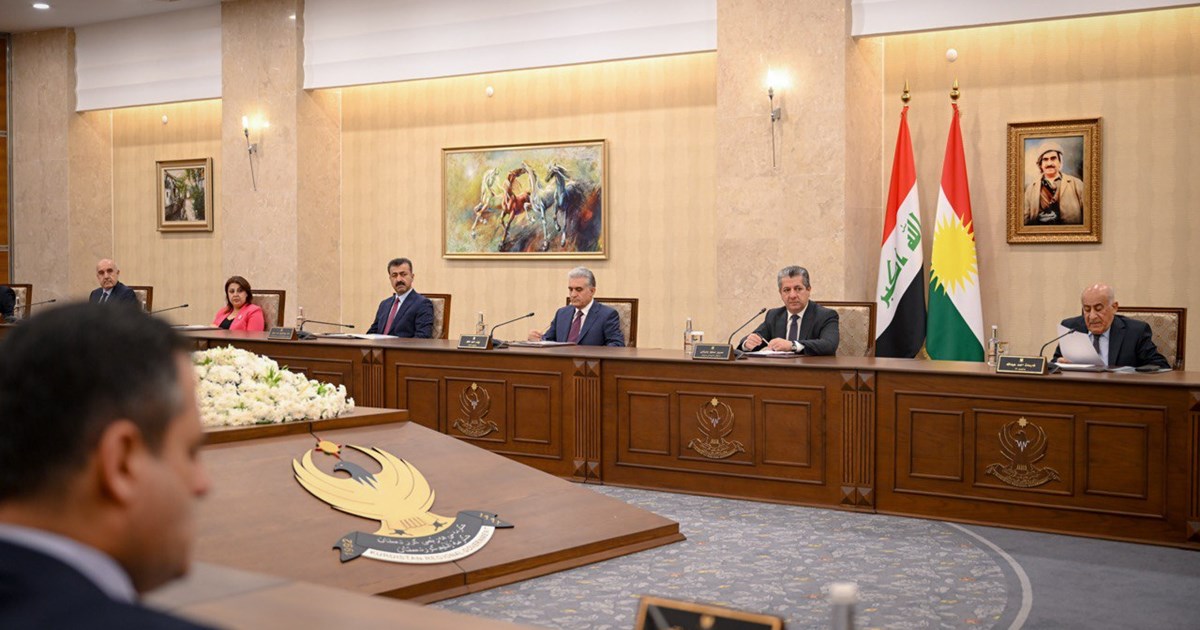KRG Council of Ministers Discusses Tripartite Oil Agreement and Salary Payments
The KRG Council emphasized that implementation of the tripartite agreement is a key step toward ensuring the stability of salary disbursements and financial entitlements in the Kurdistan Region.

ERBIL (Kurdistan24) — Kurdistan Region Prime Minister Masrour Barzani on Wednesday chaired a meeting of the Kurdistan Regional Government (KRG) Council of Ministers, with discussions focused on the resumption of oil exports and financial arrangements with the federal government.
Tripartite Oil Re-export Agreement
According to a statement from the KRG, the Council reviewed a tripartite agreement involving the KRG, the federal government, and oil companies on restarting oil exports. The deal follows the amended federal budget law and a decision by Iraq’s Council of Ministers to facilitate the process.
The Ministry of Natural Resources submitted the signed agreement—endorsed by all oil companies operating in the Kurdistan Region except DNO—to the federal government. Acting Minister of Natural Resources Kamal Mohammad Salih said the Region is now awaiting the Iraqi Ministry of Oil’s final approval, with implementation expected within days.
He stressed that the KRG has completed all necessary preparations, noting that under the agreement, all oil produced in the Kurdistan Region will be exported, except for the portion reserved for domestic consumption. The State Oil Marketing Organization (SOMO) will oversee marketing under the joint framework.
The KRG Council emphasized that implementation of the tripartite agreement is a key step toward ensuring the stability of salary disbursements and financial entitlements in the Kurdistan Region. It welcomed Baghdad’s approval of the deal and the federal decision to release salaries for July, with payments for August and subsequent months expected to follow.
“The Council of Ministers reaffirms its commitment to fulfilling obligations and providing salaries and entitlements to the people of the Kurdistan Region,” the statement read.
Non-oil Revenues and Transfers to Baghdad
In the second part of the meeting, the Council addressed developments regarding the classification of non-oil revenues and cooperation with Baghdad on financial oversight.
The ministers reiterated their readiness to resolve outstanding issues in line with the Federal Financial Management Law, the Federal General Budget Law, and rulings from the Federal Court.
As part of these commitments, the Council instructed the Kurdistan Region’s Minister of Finance and Economy to transfer 120 billion Iraqi dinars in non-oil revenues for July to the federal treasury. The process will be coordinated by a six-member joint ministerial committee in Baghdad tasked with resolving non-oil revenue matters.
Oil exports from the Kurdistan Region were halted in March 2023 following a ruling by the International Chamber of Commerce in Paris, which required that Kurdish crude exports through Turkey’s Ceyhan pipeline be conducted with Baghdad’s approval. Since then, lengthy negotiations between Erbil, Baghdad, and oil companies have sought to find a formula for their resumption.
The latest agreement is viewed as a breakthrough that could unlock overdue payments to civil servants in the Kurdistan Region and stabilize financial ties between the two governments, while also restoring vital revenues to Iraq’s federal budget.

